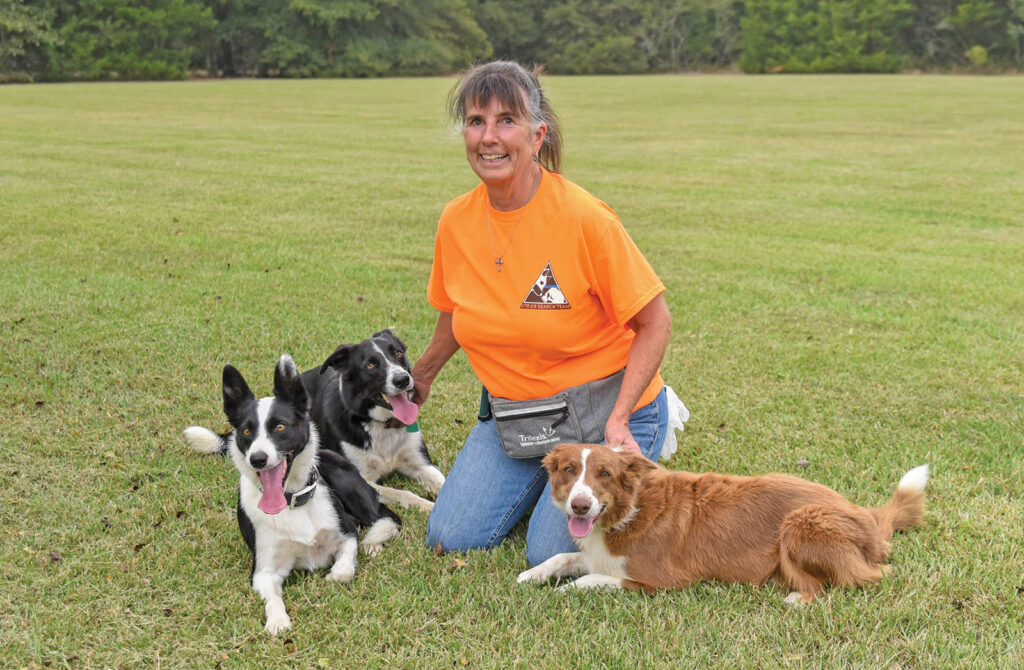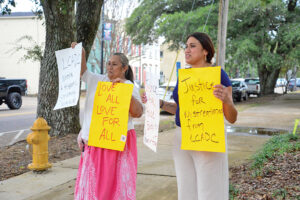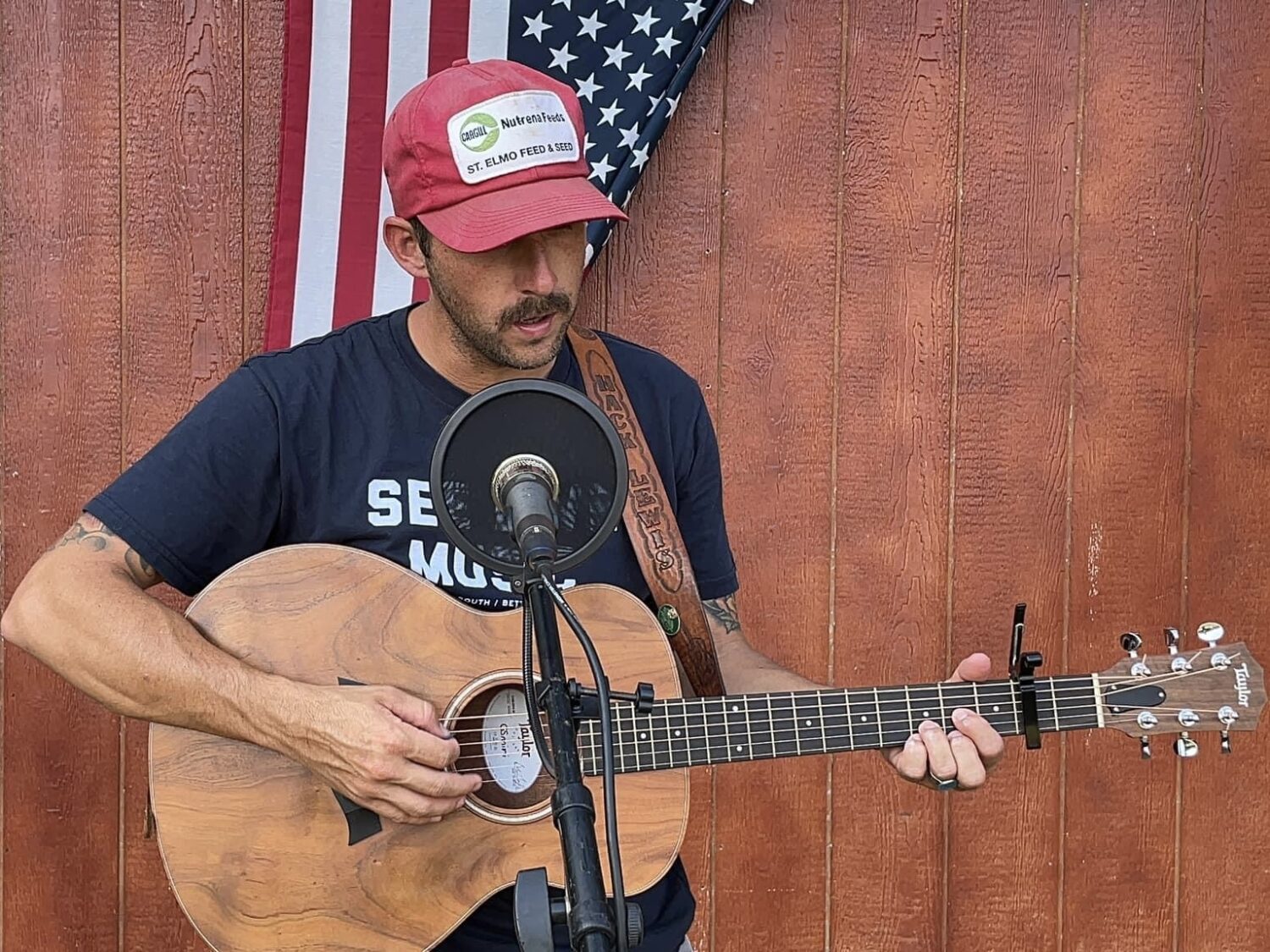
About five years ago, Kathy Doty came to a candid realization: She wasn’t getting any younger, and her dogs weren’t getting any lighter.
For almost 30 years, Doty, 67, has worked as part of search operations to assist law enforcement, using the dogs she has trained over the years to find the scent of victims — from people buried under the rubble caused by a natural disaster to accidental deaths such as drownings or victims of foul play.
It’s called search and recovery (SAR), since Doty’s dogs are trained exclusively to recover deceased humans. The dogs can locate the remains even when buried.
Although many breeds are used for SAR, the most commonly used breeds are the German Shepherd, Labrador Retriever, Belgian Malinois and Border Collie.
“Really, what you are looking for is an intelligent, hard-working dog,” Doty said. “The work ethic is probably the most important factor.”
Since Doty began training SAR dogs in 1995, she had used Belgian Malinois, which closely resemble German Shepherds, but are less aggressive.
About five years ago, Doty switched to training Border Collies.
“I got old,” Doty said. “I realized that if a dog was injured in the field, it was going to be tough carrying out a Belgian. They weigh anywhere from 50 to 65 pounds.”
After doing some research, Doty settled on Border Collies, which weigh about half as much as Belgian Malinois.
“I chose the smooth-coat Border Collies,” she said. “An adult weighs about 30 pounds, so it’s much easier to carry out, but their work ethic is just as strong and their drive is just phenomenal.”
An added bonus: Smaller breeds tend to live longer and can stay in the field longer, too.
“The Malinois dogs I had usually had to be retired by the time they were 10,” Doty said. “My oldest Border Collie is 6, so I don’t know for sure, but there’s a good chance if they stay healthy, the Border Collies will have longer working careers.”
Doty currently has eight dogs, including three certified SAR Border Collies — Delta and Tomi Girl, both 4 years old; and Navy Seal, 2.
The three dogs are certified by both the American Working Dog Association and the U.S. Police Canine Association.
Doty and her husband, Buff, own Biddy Saw Works on Highway 69 in Columbus.
The dogs are trained using human remains in the form of teeth, hair and bones. Doty has also drawn her own blood to use for training as well.
Doty said the training takes a year to a year-and-a-half.
It’s not fail-proof, however. Some dogs simply aren’t up to the challenge.
“One of the dogs I purchased turned out to be deaf, so I couldn’t use him because the dogs have to be able to respond to commands,” Doty said. “Other dogs just aren’t up to standard.”
Dogs that wash out of training become pets, Doty said.
During the course of 30 years leading SAR teams, Doty has worked on cases all over the state and in surrounding states. Locally, Doty and her dogs worked the 2014 Louisville tornado and the search for Kaila Morris in 2009, a case that remains unsolved.
Doty said one of her most satisfying cases came shortly before Christmas in 2021 when David Neal Cox admitted to killing his sister-in-law, Felicia Cox, who had been missing since 2007. His confession came just hours before his execution on Nov. 17, 2021, for a separate murder. Cox provided a crude map of where he had buried Cox in Pontotoc County.
Doty took Tomi Girl, working one of her first cases, to work the case along with a team of archaeologists from Mississippi State University.
“Tomi Girl found the remains pretty quickly,” Doty said. “The family was there during the search when her body was found. They had waited 14 years, never knowing what had happened or where she was. It was a special day knowing we were able to help the family find her.”
Doty said she works about 10 cases a year.
“Sometimes, we’ll get called out several times in a month and they won’t get called out for a month or two,” Doty said. “But we’re ready whenever we get a call.”
Slim Smith is a columnist and feature writer for The Dispatch. His email address is [email protected].
You can help your community
Quality, in-depth journalism is essential to a healthy community. The Dispatch brings you the most complete reporting and insightful commentary in the Golden Triangle, but we need your help to continue our efforts. In the past week, our reporters have posted 46 articles to cdispatch.com. Please consider subscribing to our website for only $2.30 per week to help support local journalism and our community.







